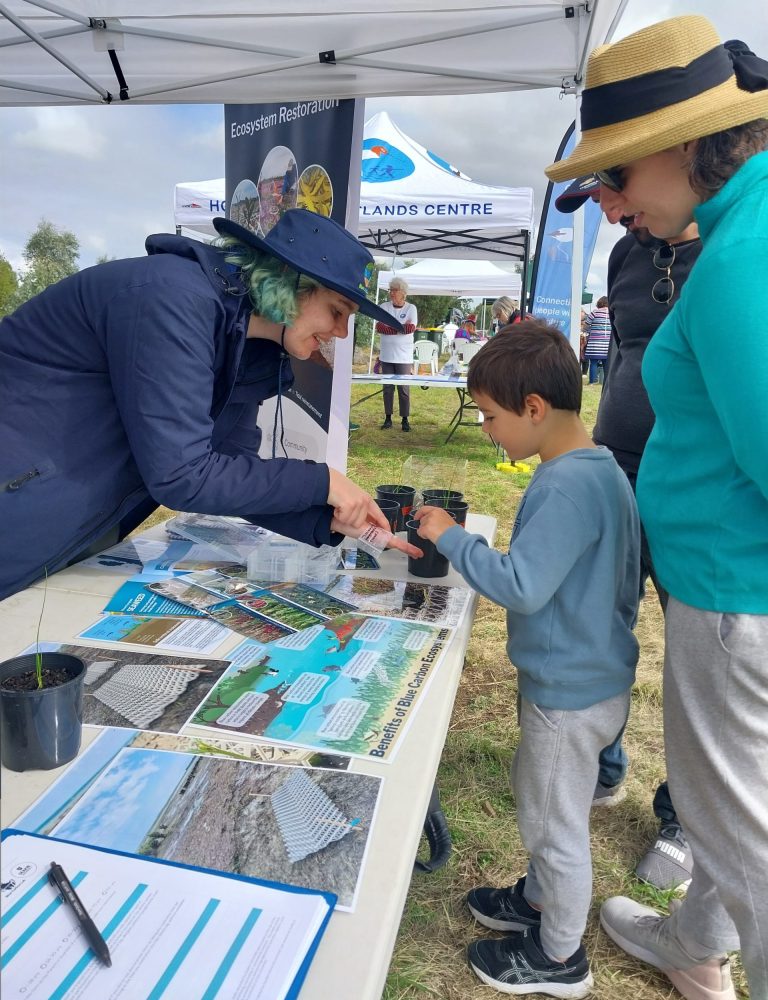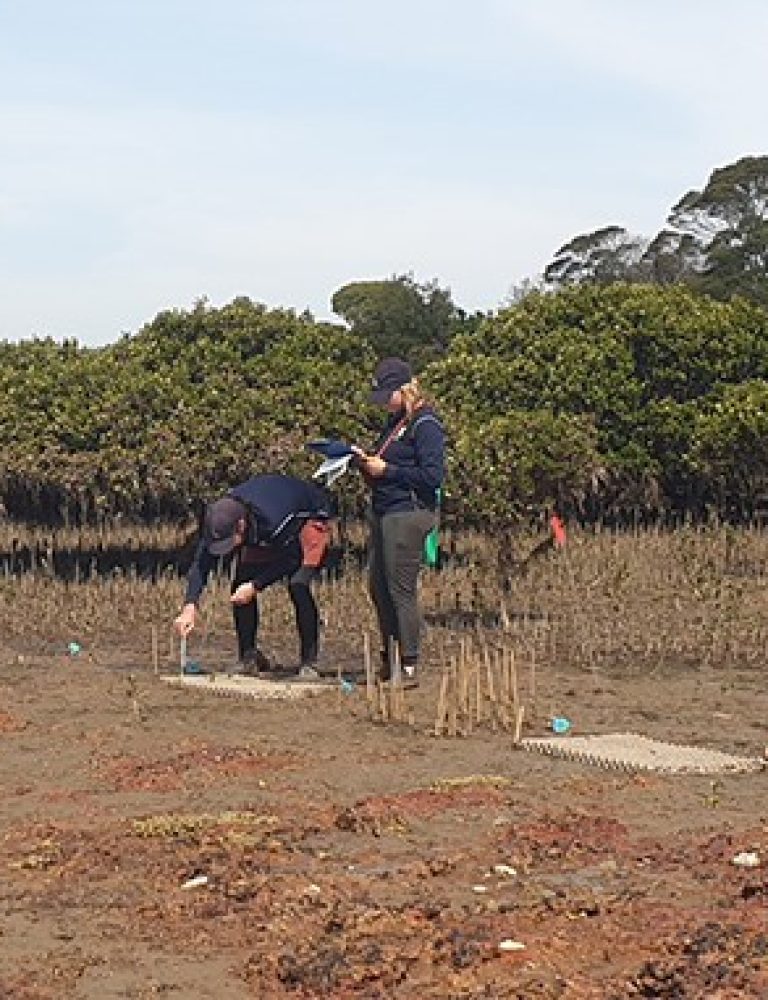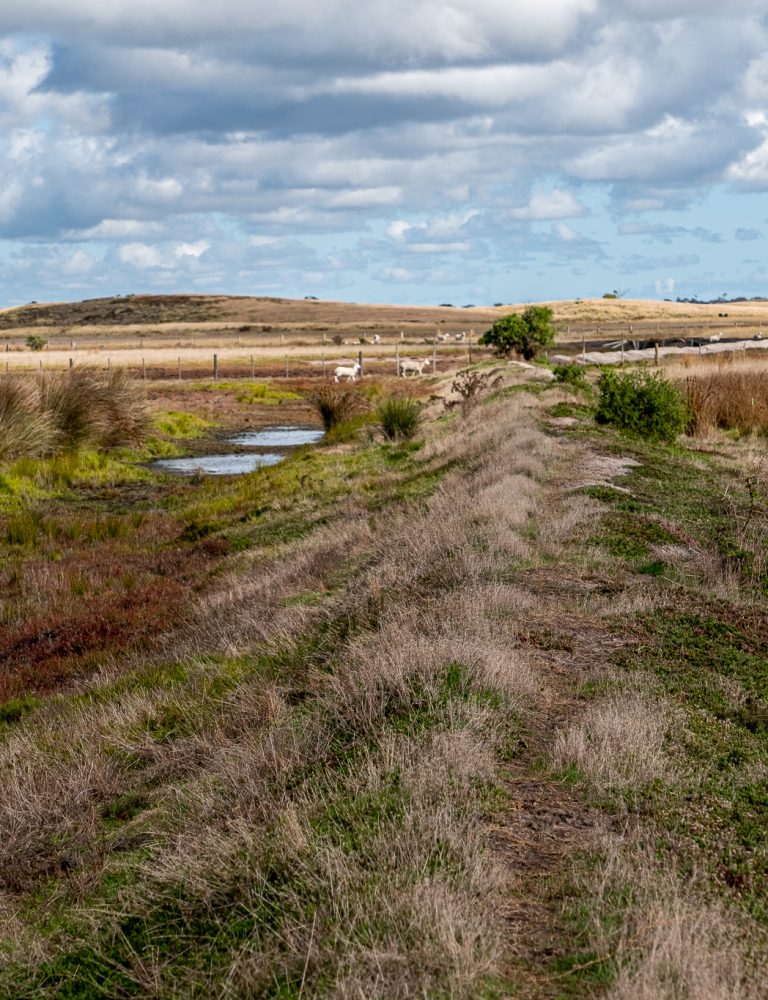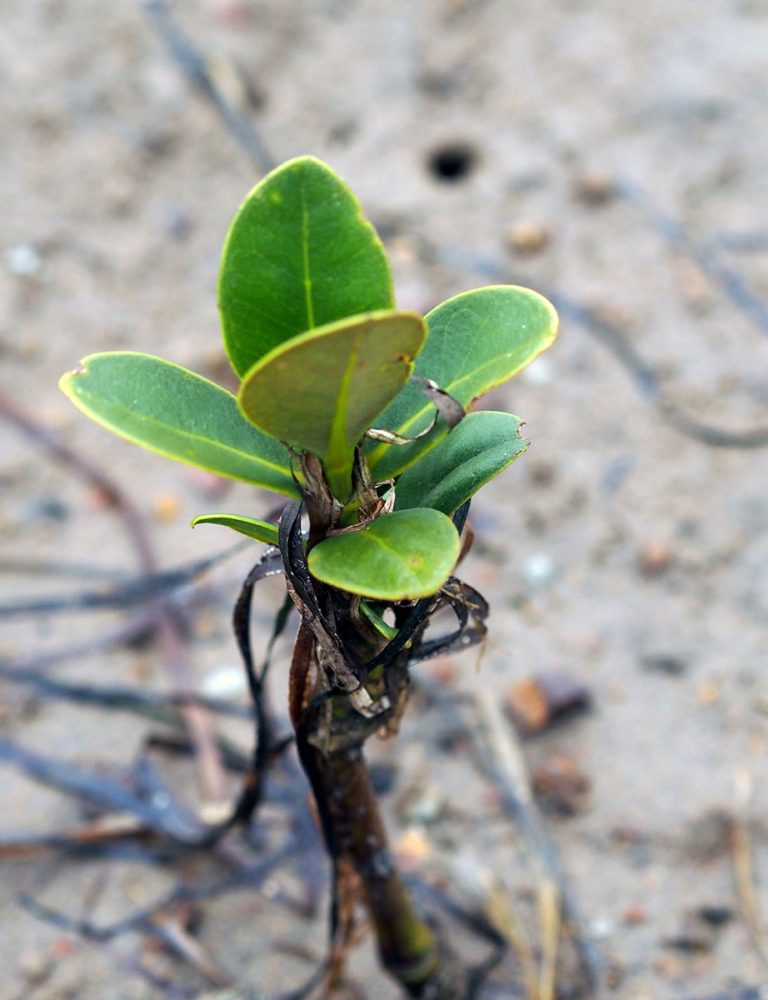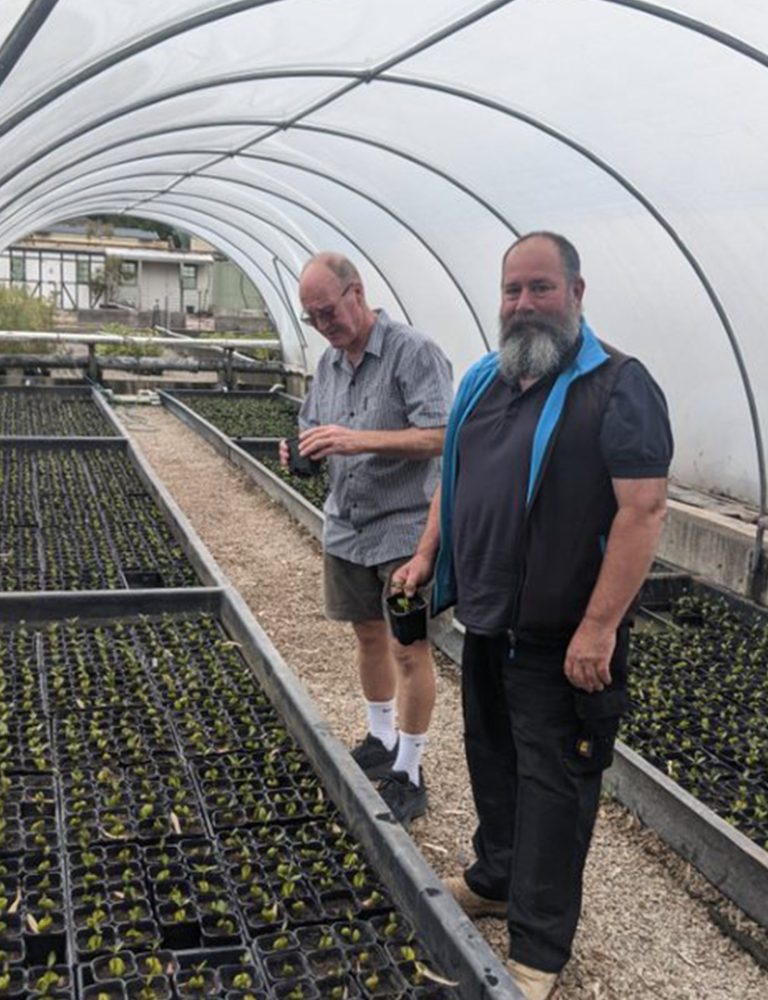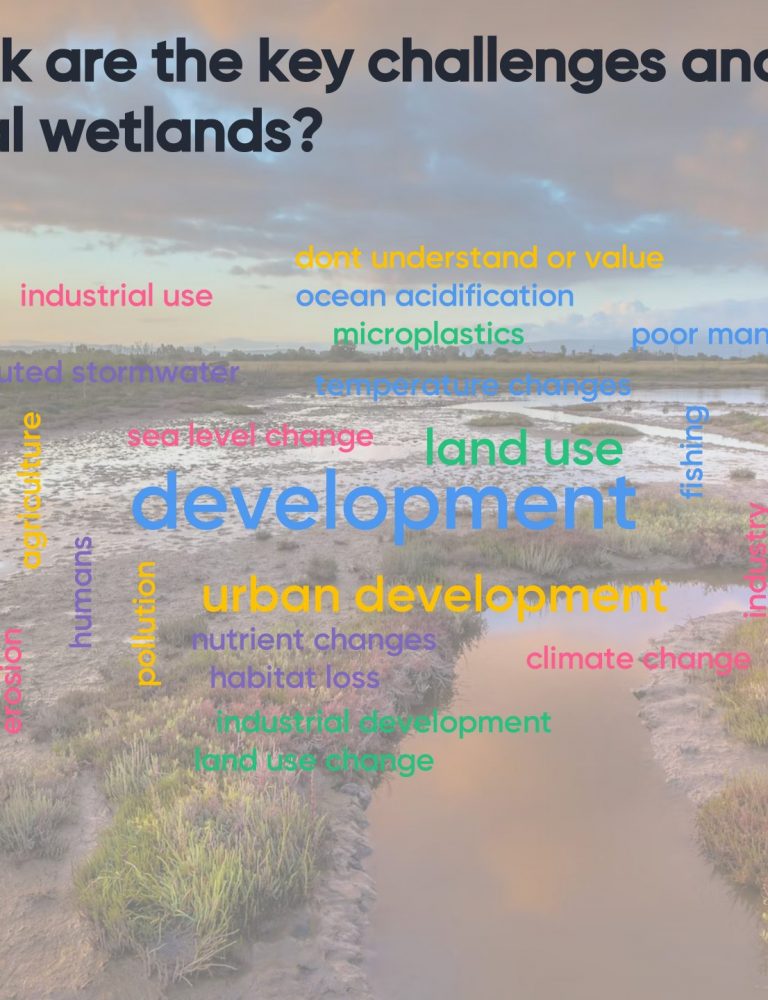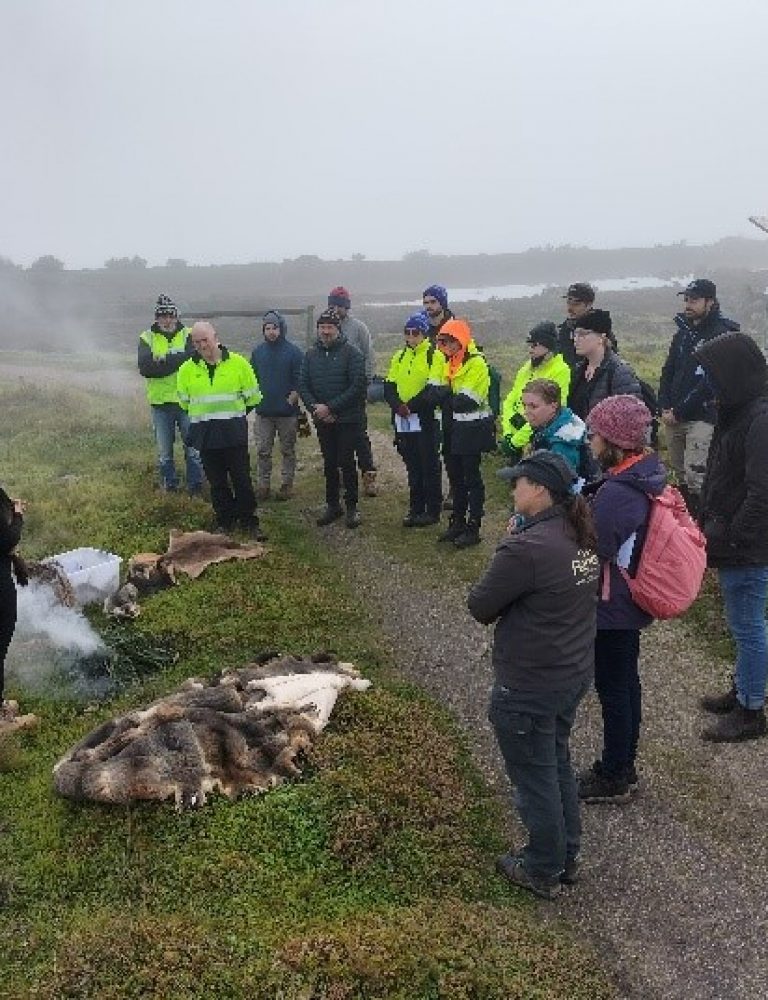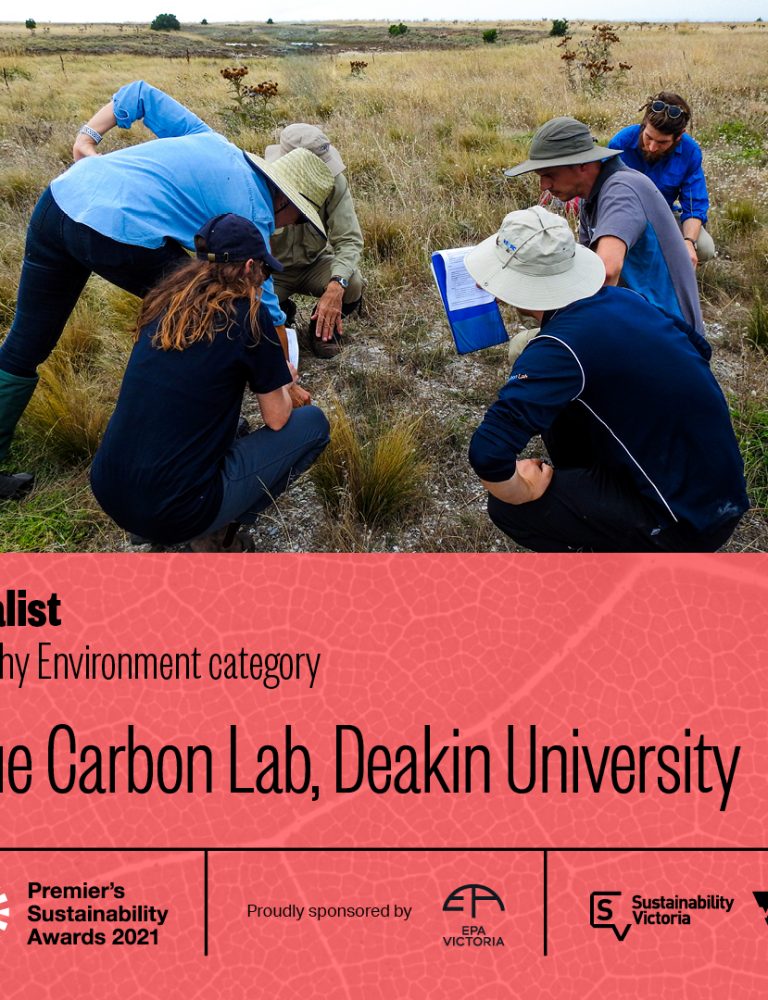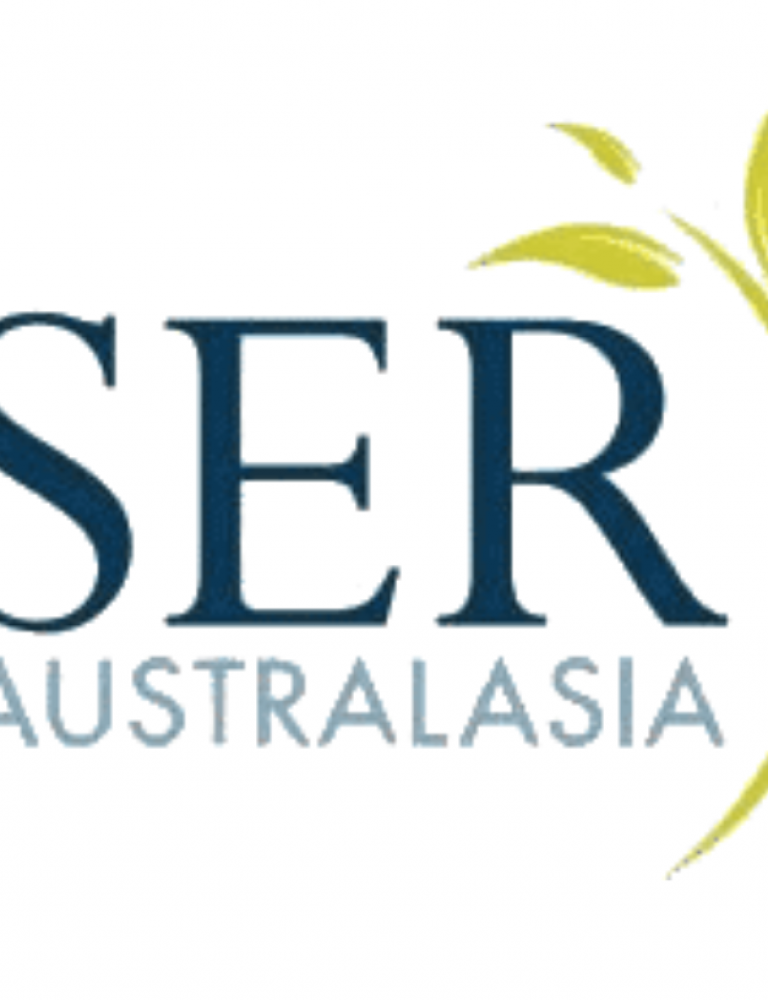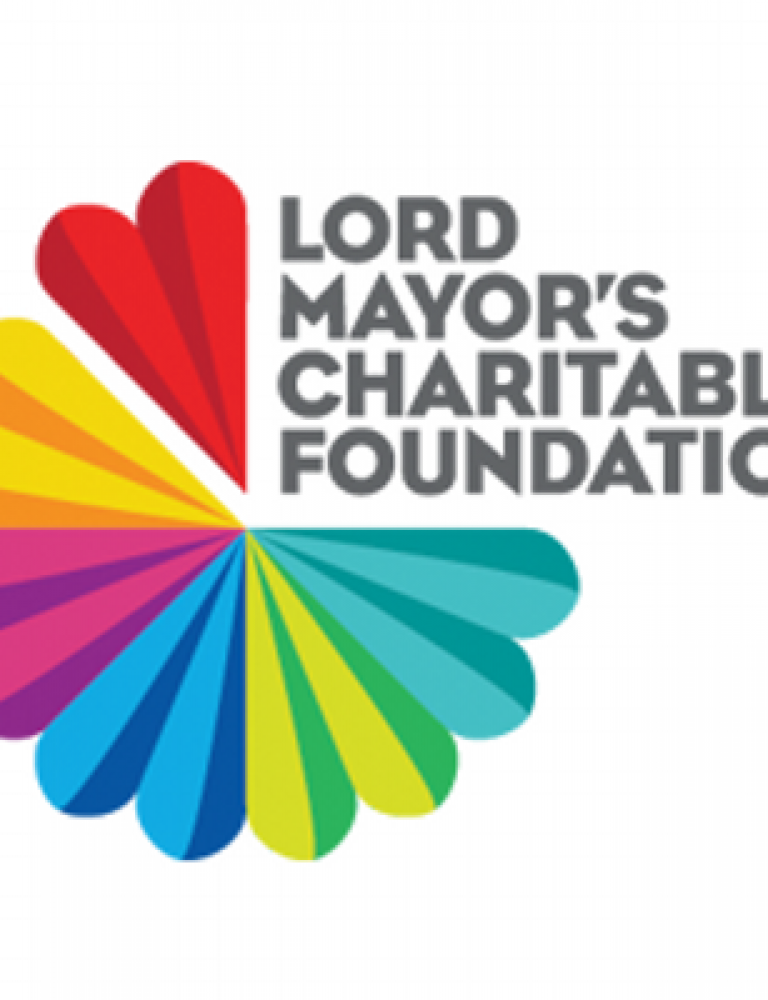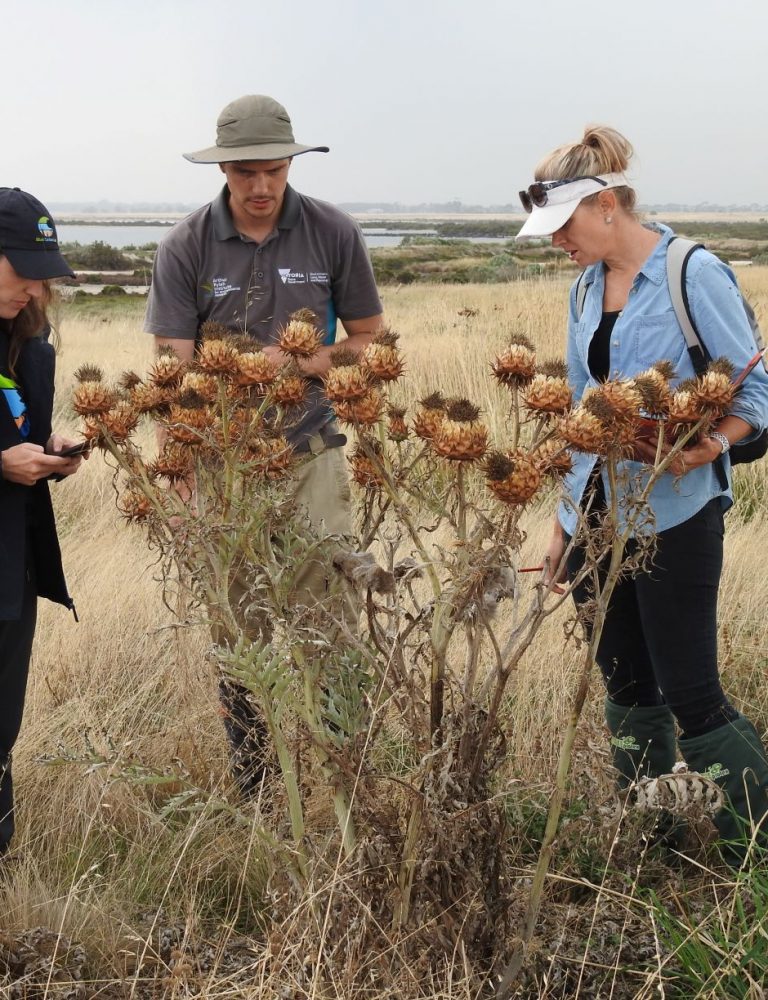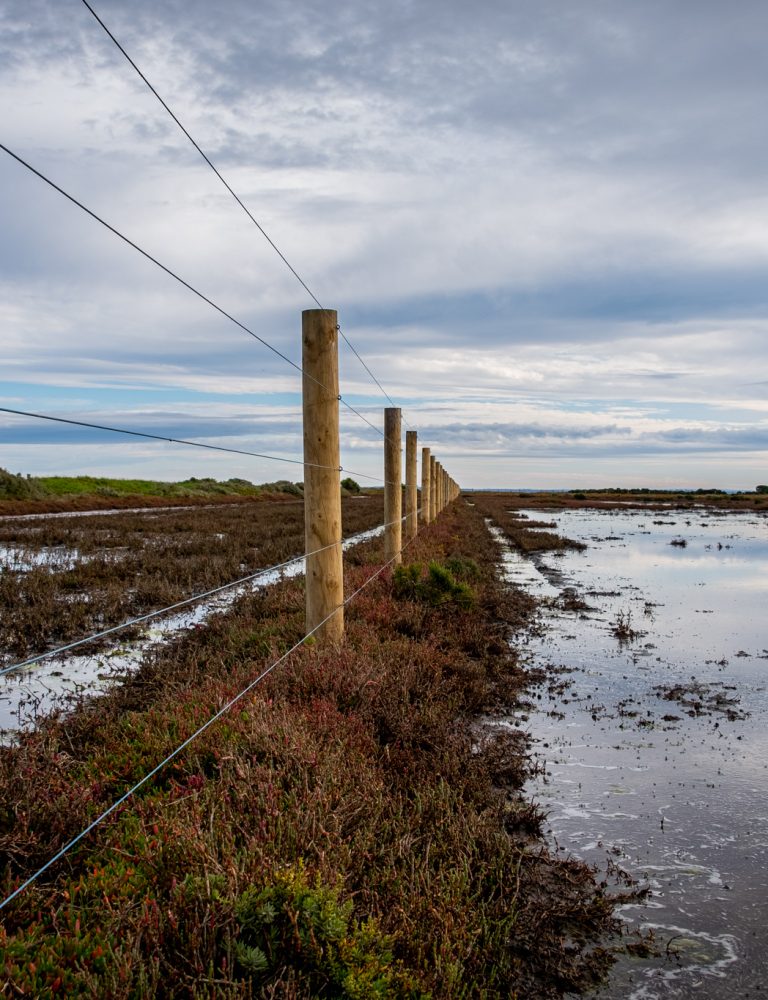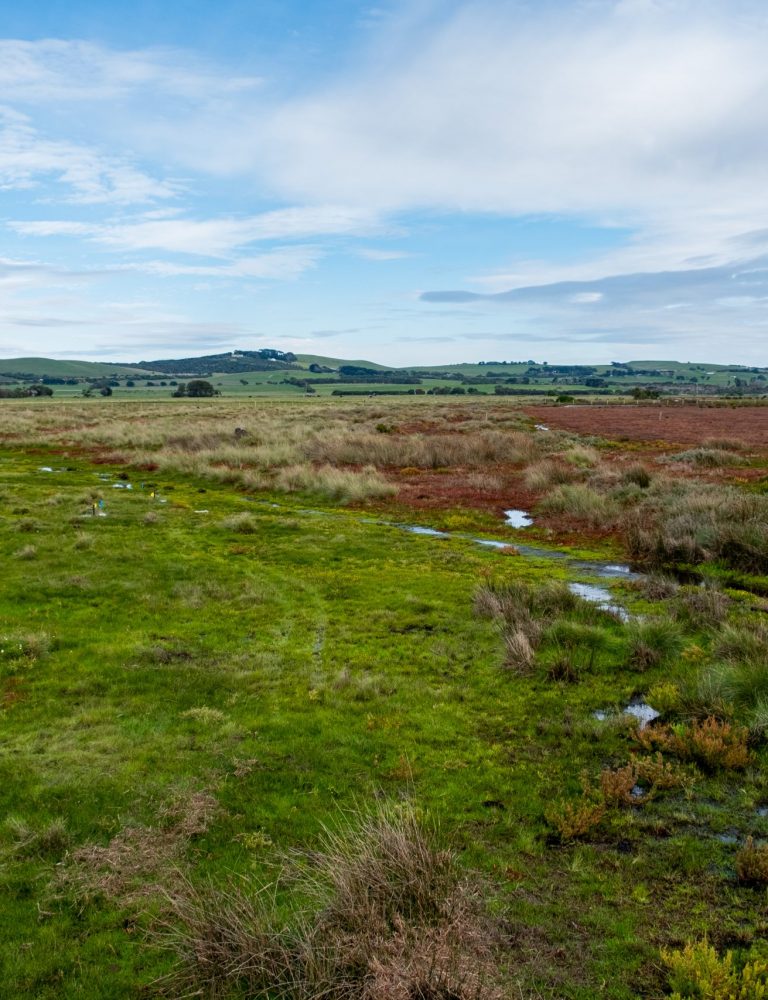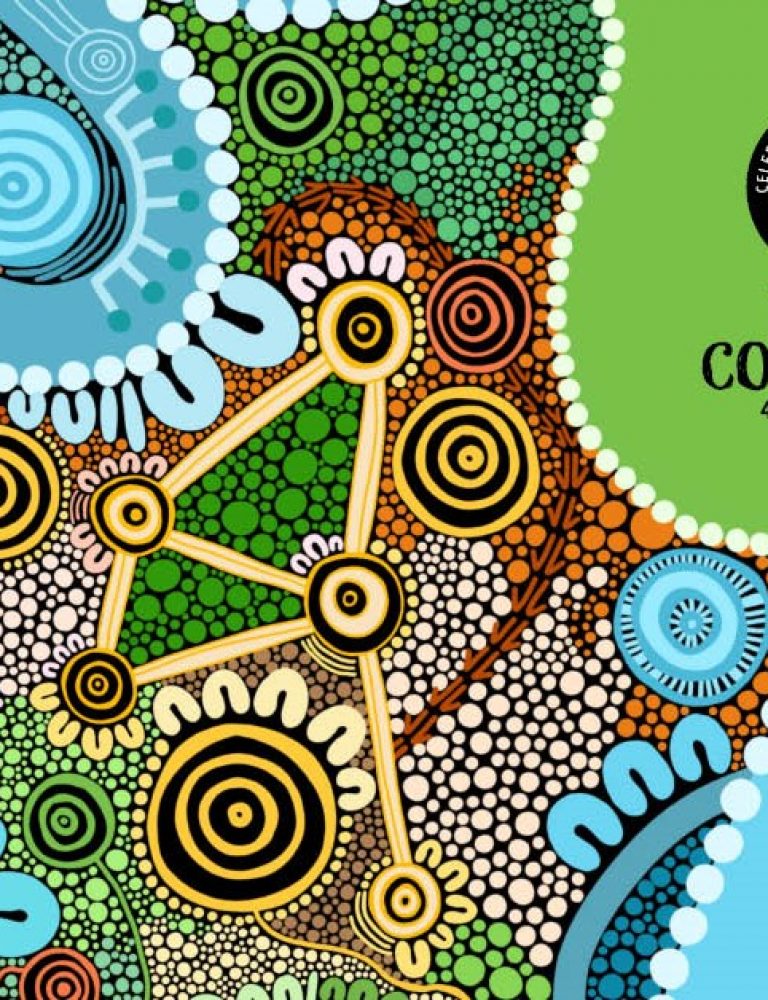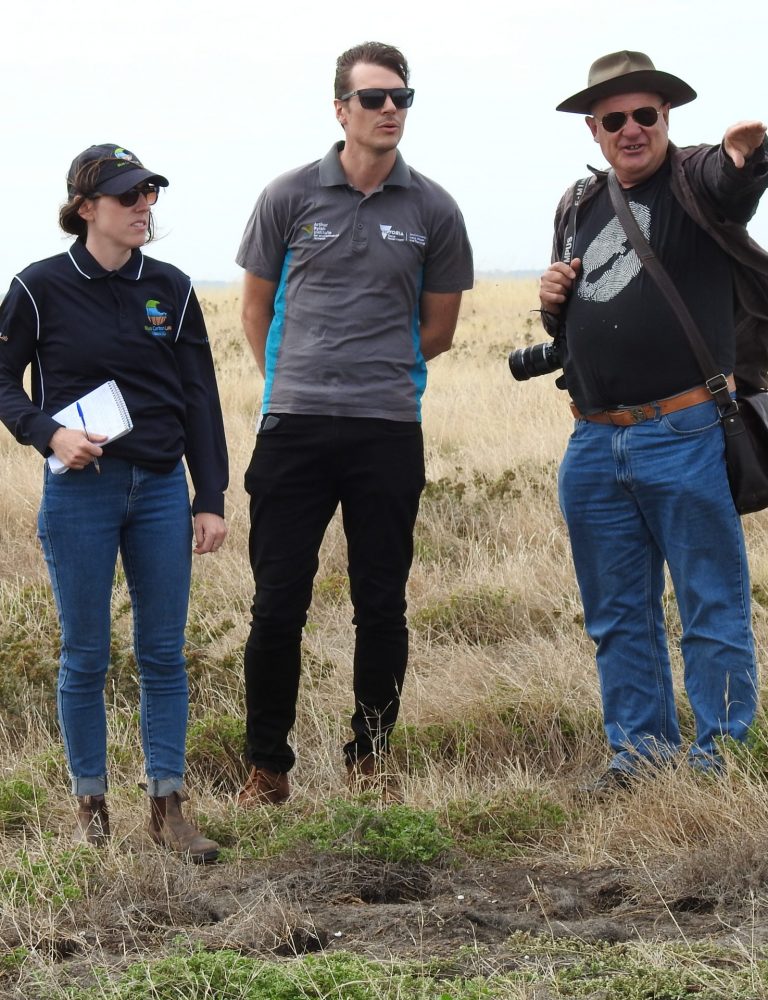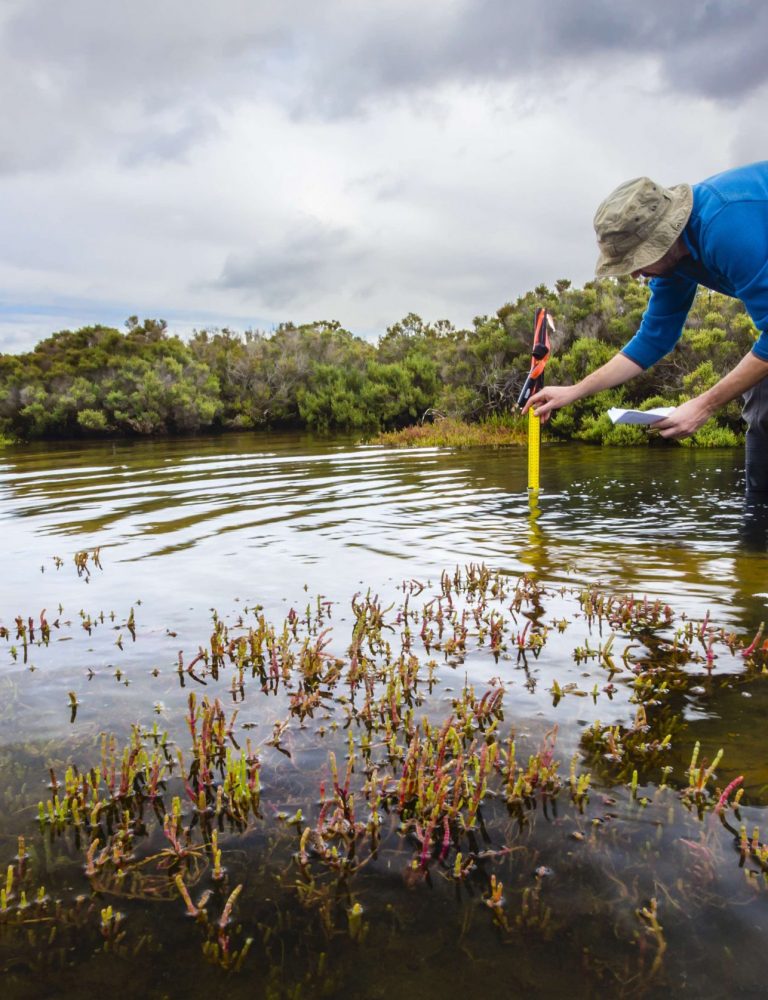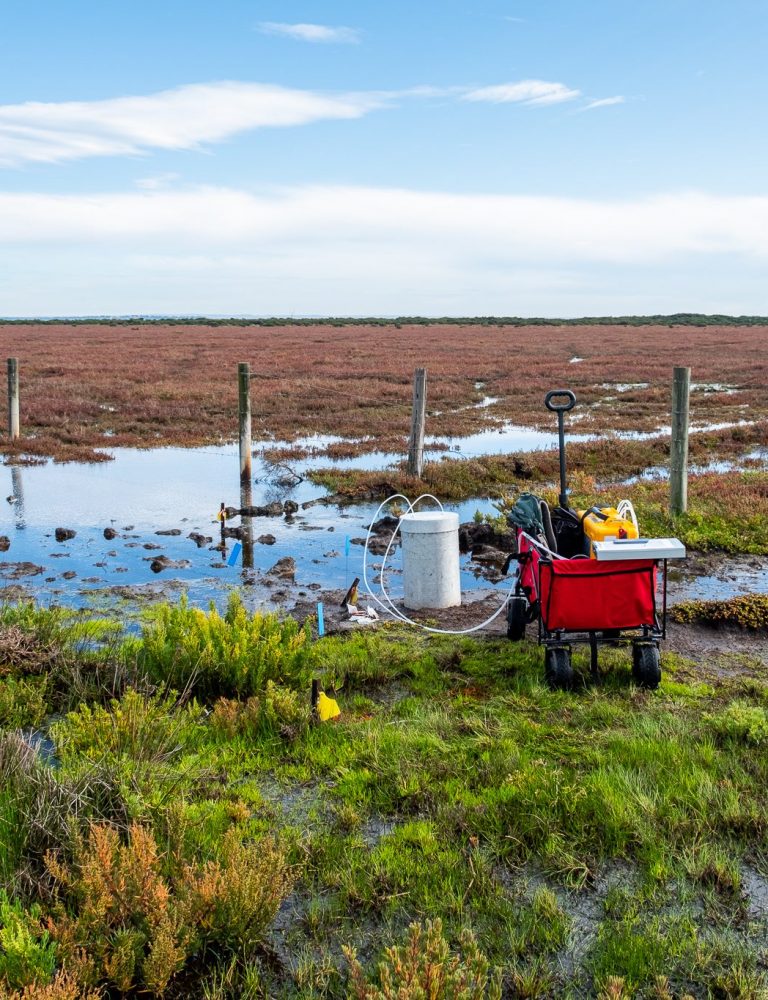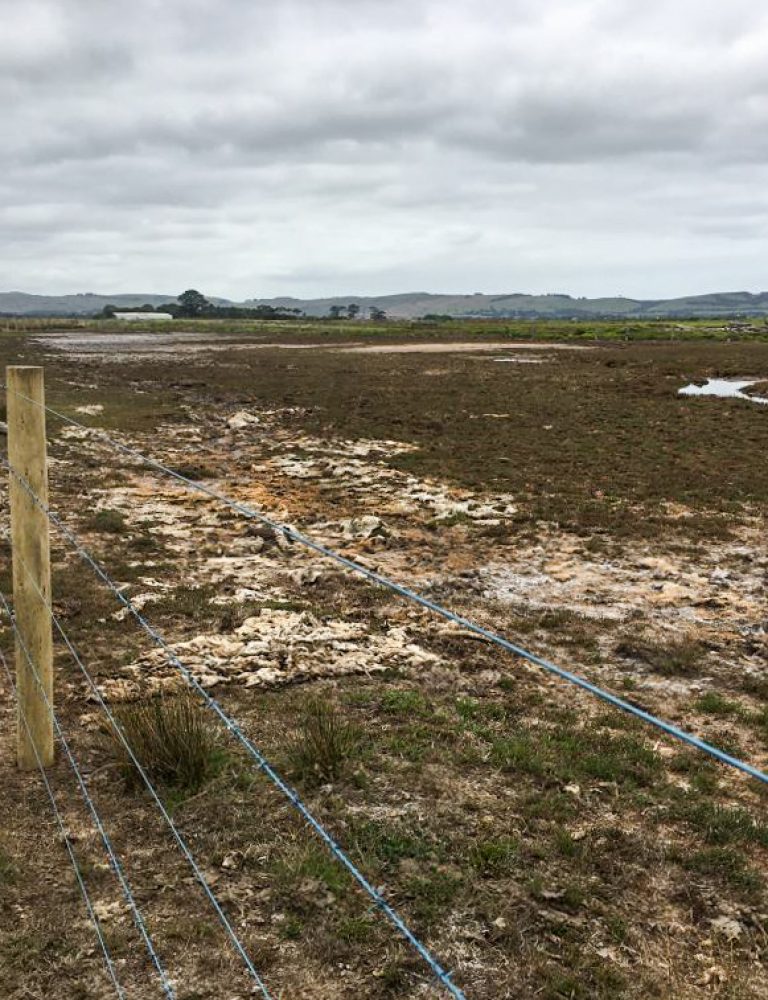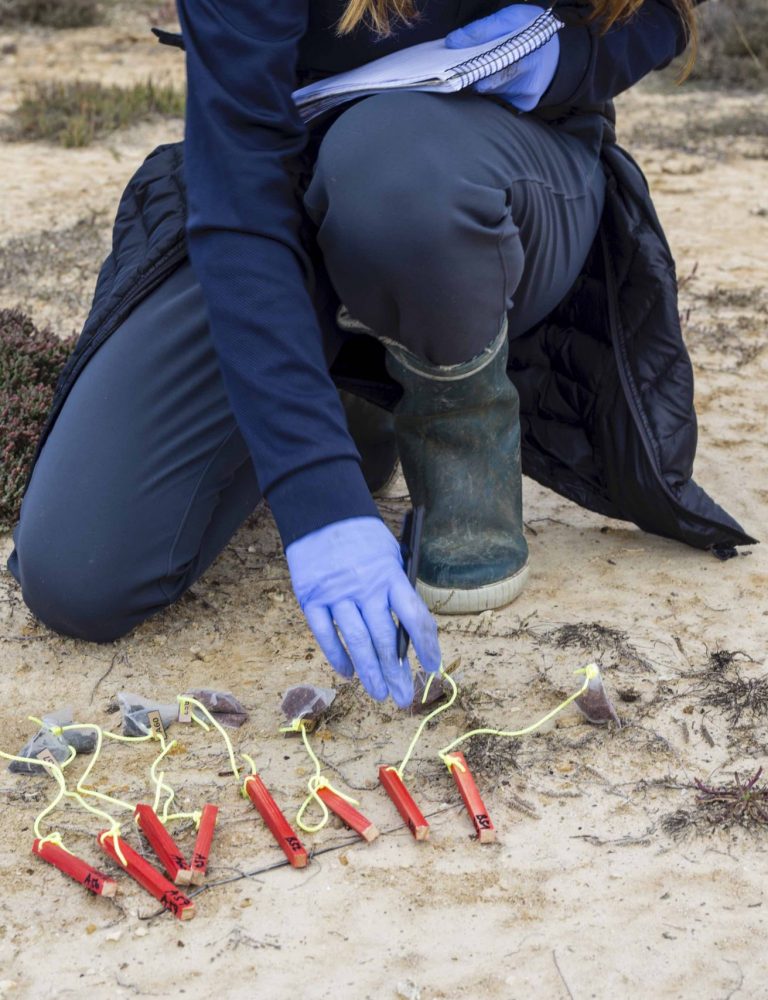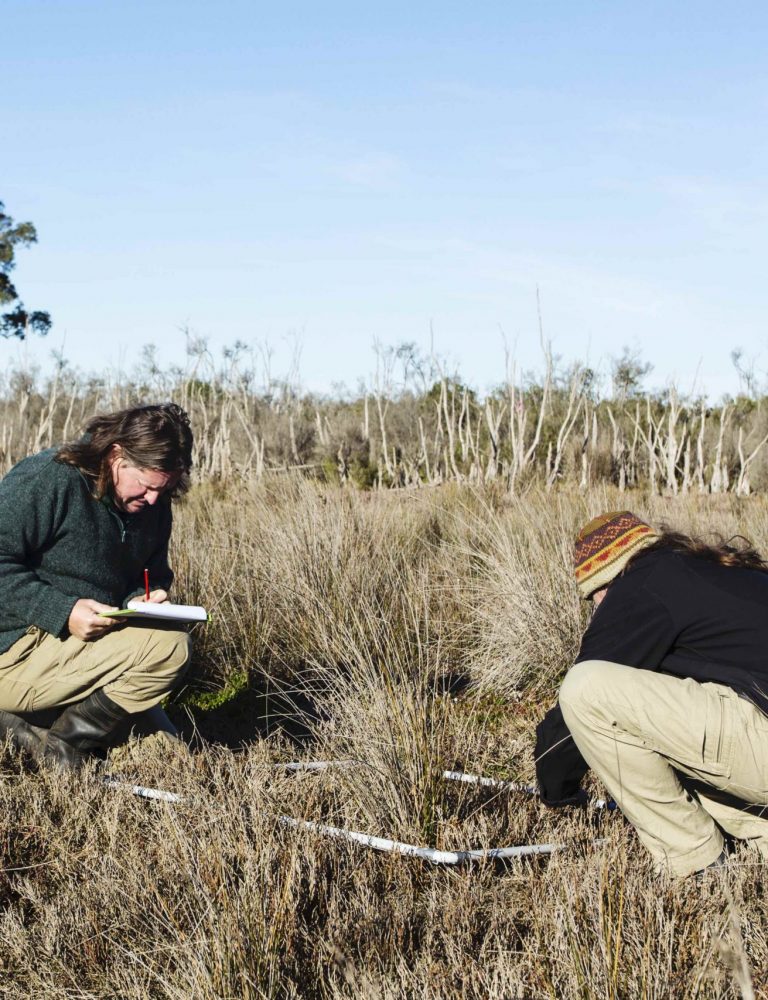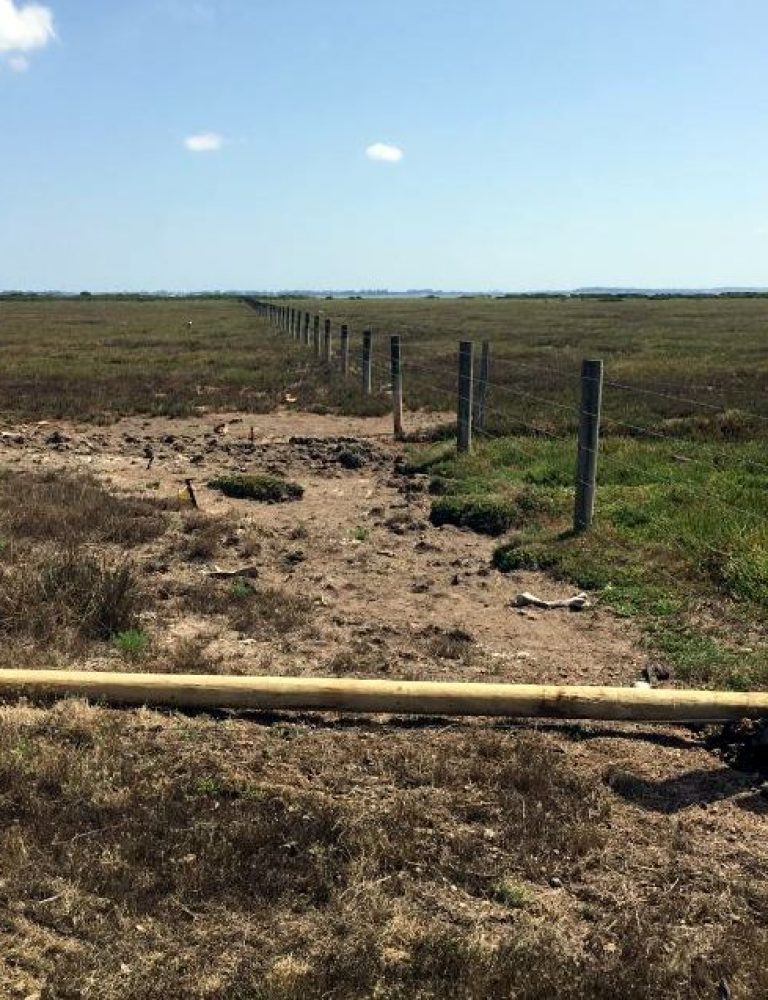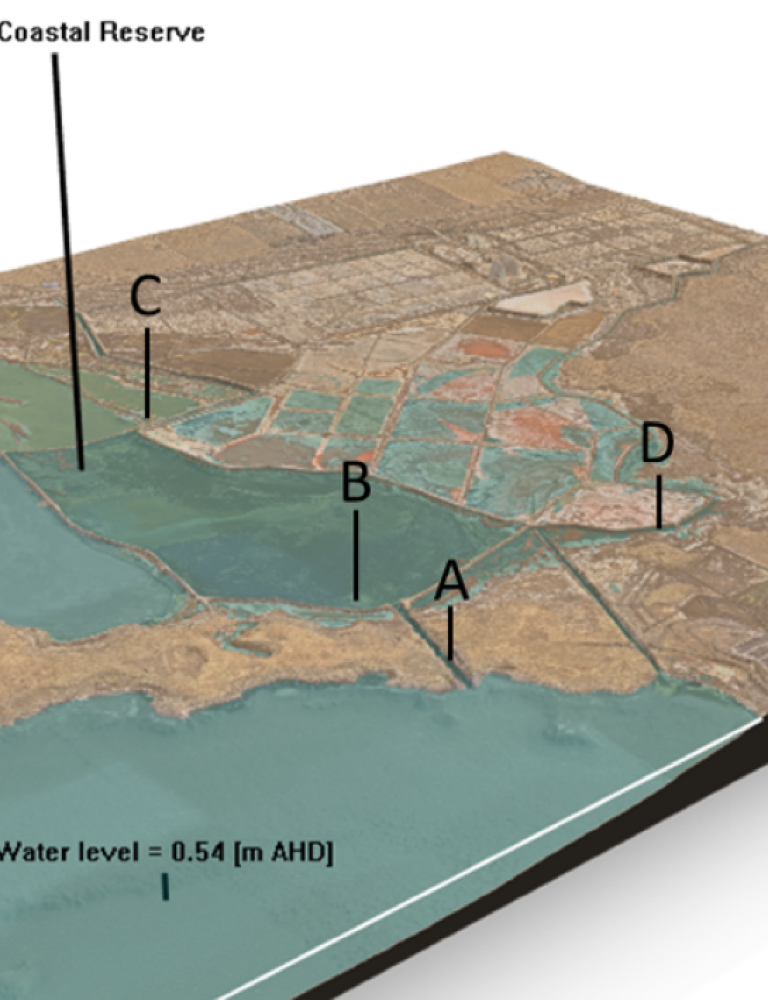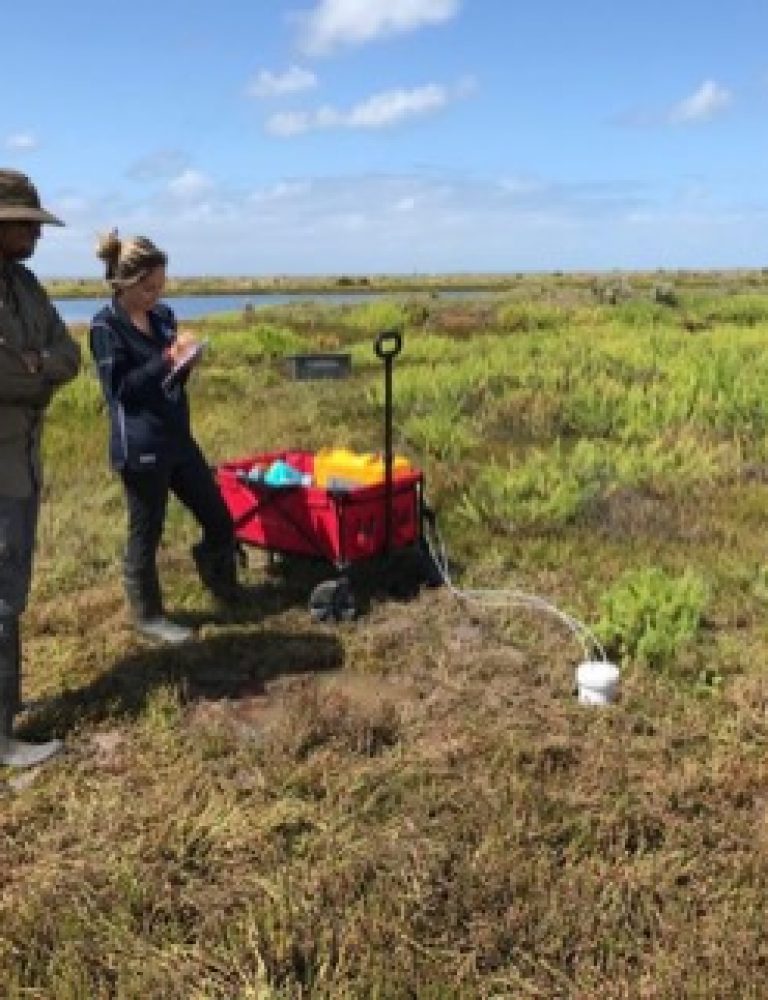COASTAL WETLAND RESTORATION
Restoring wetlands of our past, for our future
Coastal wetland ecosystems, including mangroves, seagrasses and tidal marshes, store carbon and provide co-benefits, such as coastal protection and fisheries enhancement. Unfortunately, they are one of the most threatened ecosystems on earth and continue to face threats from urban and agricultural development, coastal squeeze, sea-level rise, pollution, and inappropriate recreation.
The restoration of lost and degraded coastal wetland ecosystems is a natural climate solution, resulting in enhanced carbon sequestration and avoided emissions, while delivering important ecological and societal co-benefits.
Our Coastal Wetland Restoration Program comprises of three pillars: Plan, Action and Monitor. Using a multidisciplinary approach, we translate decades of innovative research into on-ground restoration action using new approaches and proven low-cost methods to support ecosystem recovery. We use best-practice standards to implement, monitor and evaluate the outcomes of the restoration actions.
The outcomes from our Coastal Wetland Restoration Program work to improve foundational knowledge of restoration impact on plant and soil function and recovery, and to support the development of blue carbon markets, the valuation of created natural capital, and the resilience to climate change of local communities through building adaptive capacity.
Restoration facts
Disappearing fast
Global wetlands
have
declined
by 64
to 71%
since
1900.
Protection
Protecting existing
blue carbon
ecosystems
could avoid
emissions of
304 Tg CO2e
per year.
Restoration
Large-scale restoration of blue carbon ecosystems could remove an extra ~3% of annual global greenhouse gas emissions.
Carbon markets
In early 2022,
Australia released
its first blue
carbon method
under the
Emissions
Reduction Fund.
UN Decade
The UN Decade on Ecosystem Restoration aims to prevent, halt and reverse the degradation of ecosystems on every continent and in every ocean.
Plan
Cost Benefit Analysis of coastal wetland restoration
This project will undertake a cost-benefit analysis of coastal wetland restoration to develop the business case for upscaling coastal wetland restoration, which will look at ‘blue carbon’ credits as well as achieving other important co-benefits.
Mapping the benefits and costs of management actions for coastal wetlands in Victoria
This project used the UN System of Environmental Economic Accounting Ecosystem Accounting (SEEA EA) to assess the extent, condition and physical and monetary services provided by existing mangroves, saltmarshes, and seagrasses across Victoria, and how these could be improved through different management options (e.g., fencing, levee removal, managed removal).
Enabling Blue Carbon Markets
This project aims to understand the amenability of landholders to change land use practices within their lands, and to develop a pre-feasibility assessment of potential restoration sites at local scale that combines on-ground restoration work and the generation of Australian Carbon Credit Units (ACCUs).
Upscaling low-cost restoration activities
This project will work towards increasing restoration efforts state-wide by determining scale of opportunity for fencing, supporting practitioners with specialist resources, and reviewing financial impetus mechanisms to encourage long term protection.
Action
The Victorian Coastal Wetland Restoration Program
The #VicWetlandRehab is a multidisciplinary program– comprising Academia, Government, Industry, and Traditional Owners – guiding and undertaking the restoration of critical wetland habitat on both private and public land, helping to facilitate the recovery of some of Victoria’s most endangered birds, frogs and other threatened plants and animals.
#VicWetlandRehab
exploreMonitor
Saltmarsh restoration and monitoring utilising citizen scientists
This project restored marginal farmland back to coastal wetlands using low-cost exclusion fencing in Swan Bay, Victoria. Blue Carbon Lab researchers undertook a pilot study where citizen scientists, in combination with remote sensing methods, helped to monitor the restoration outcomes using vegetation as an indicator.
exploreExploring belowground recovery in response to 25 years of restoration
Using a space-for-time approach that comprises saltmarsh ecosystems established for 0-60 years, this project is monitoring the belowground responses to restoration. Our techniques include root growth and decay, soil carbon stocks and physical soil properties.
#coastalrestoration
Follow the program on social media using #coastalrestoration



